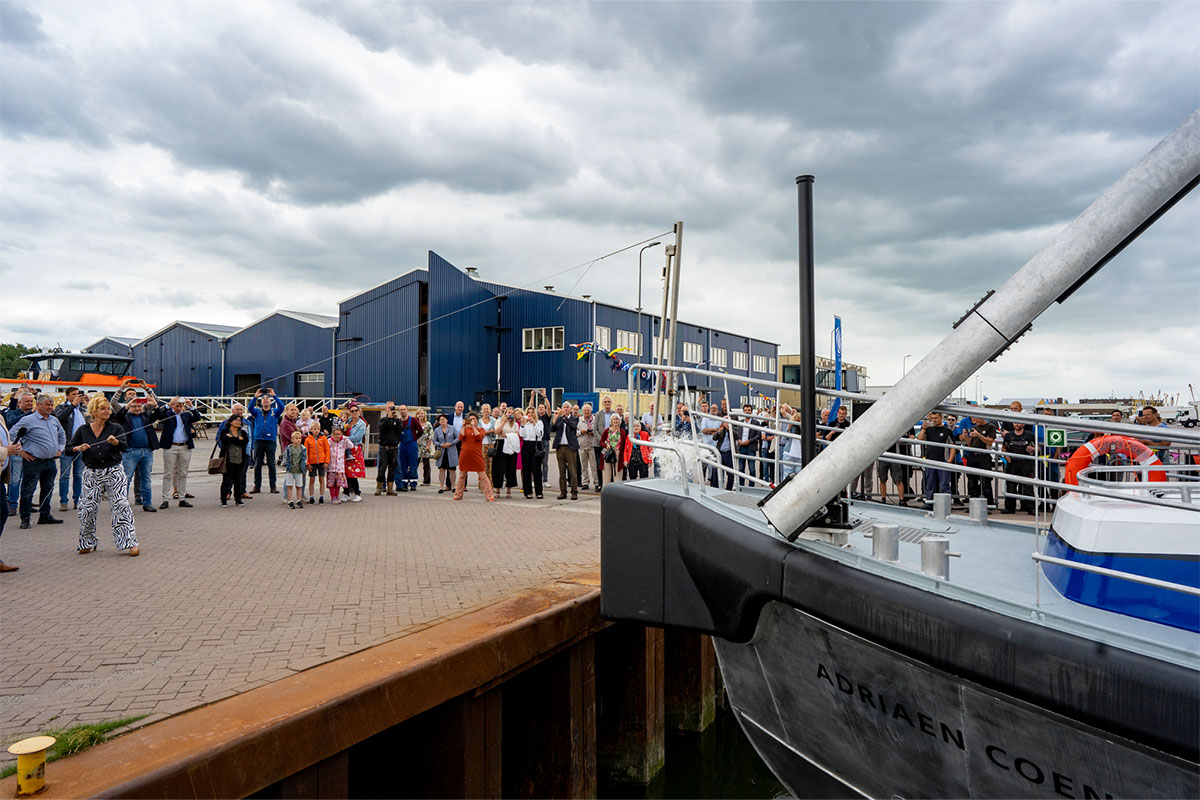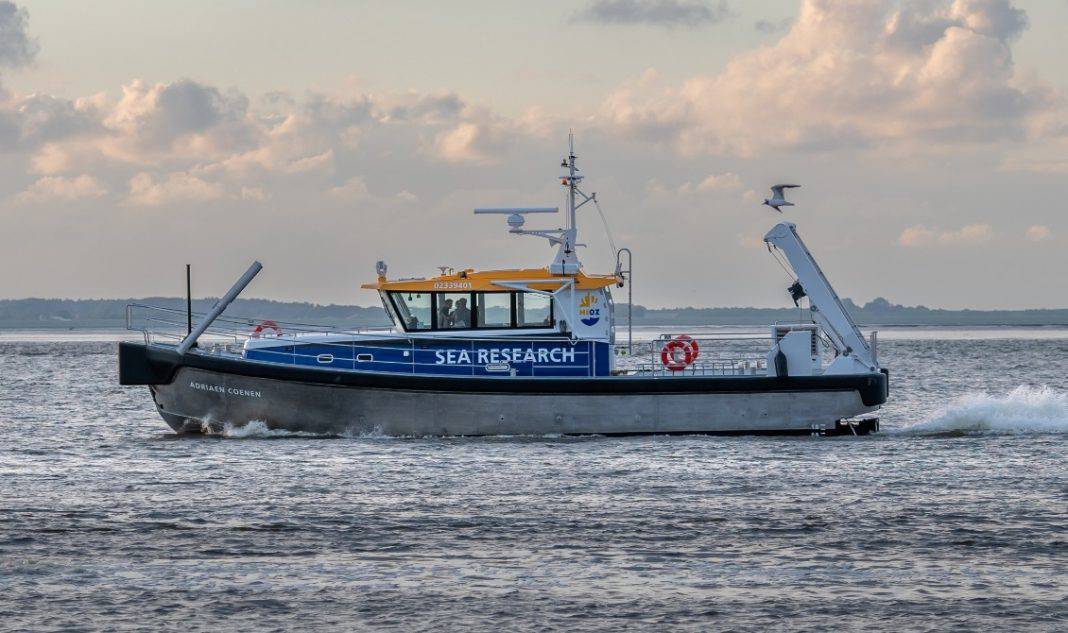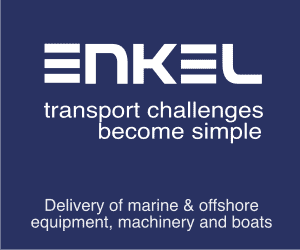Research Vessel Adriaen Coenen was christened on Wednesday, 6 July 2022 at Next Generation Shipyards in Lauwersoog, where the vessel was built. The christening of the RV Adriaen Coenen marks a new phase in the replacement of the national research fleet. After years of preparation, the smallest ship in the new research fleet will soon set a course for the open sea. Once it completes the final round of tests, around 22 July, the RV Adriaen Coenen will make its way to the home port of the Royal Netherlands Institute for Sea Research (NIOZ) on Texel to replace the RV Stern. The NIOZ is working hard to replace the two larger research ships it manages as part of the national research fleet.

Director of NIOZ, Han Dolman: “With this Wadden Sea vessel, research will be conducted from climate change to biodiversity. We paid close attention to the most climate-friendly construction and energy consumption”. Albert Keizer, director of NG Shipyards: “The ship was built with solar energy, it sails on a biofuel, and the AdBlue system on the exhaust limits nitrogen emissions”. Both managing directors mentioned the smooth cooperation on the innovative ship, which was built entirely according to plan in just one year.
Flexible functionalities
The RV Adriaen Coenen features work spaces for two crew members and 12 passengers, including scientists, assistants, assistants and other guests. Its shallow draught of 85 centimetres allows the vessel to pass the slack waters at high tide and beach itself on the sandbars. The new vessel can also be used for minor push- and tug work, for example to help move the mobile ‘Wadtoren’ bird observation platform. The boat is equipped with wet and dry laboratories, ICT infrastructure, communications equipment, cranes and a spacious working deck with room for 2 rubber boats or a 10-foot container. Skipper Wim Jan Boon is happy with the new research vessel: “It is a quiet ship, which is very pleasant for crew, researchers and the environment. Because the computer automatically keeps the ship in the desired position during research, I can work more efficiently.”
As sustainable as possible
Feico Hoogeveen from NAVIS was responsible for supervising the construction, together with a project support team. “The hull of the Adriaen Coenen was designed to take advantage of CFD (Computational Fluid Dynamics) simulations to optimise its hydrodynamic characteristics. The propulsion system uses hydrojets to allow the vessel to operate in shallow water and to beach itself without causing damage to the propellers.”
“The energy is provided by HVO (Hydro-treated Vegetable Oil), a biological diesel replacement. That provides a major reduction in emissions: 90% less fossil CO₂ released into the atmosphere. When combined with particle filters and a catalytic converter, the system is at least equivalent to the emissions reduction achieved by using methanol. And the AdBlue system fitted to the exhaust also provides a significant reduction in nitrogen emissions. All of the installations were designed to use as little energy as possible. The coolant water system, for example, includes a thermal transfer unit. The LED lighting are controlled by movement sensors and powered by solar panels. The vessel is also fitted with as much thermal insulation as possible to keep energy consumption for heating to a minimum.”
The RV Adriaen Coenen is expected to be transferred to the NIOZ and sailed to Texel on Friday, 22 July. Her predecessor, the 50-year-old RV Stern, will be sold to Next Generation Shipyards.










